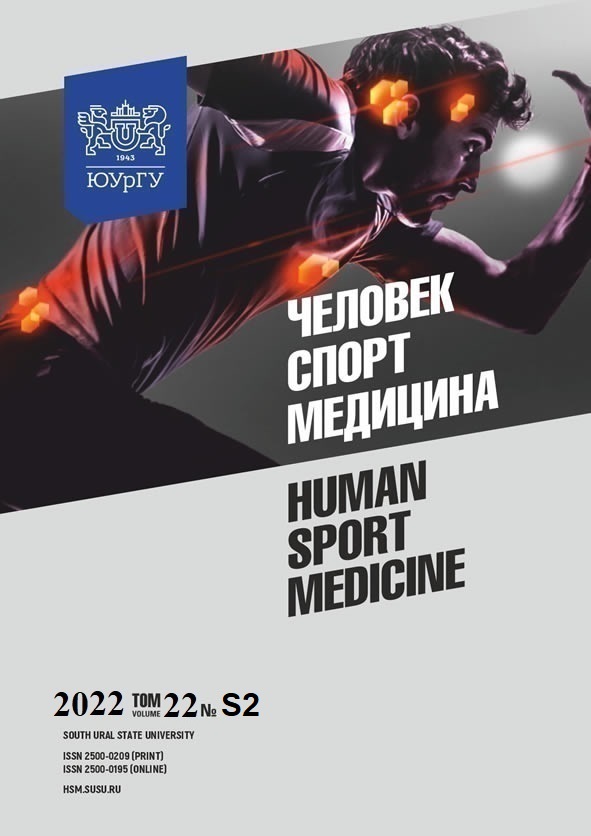PHYSIOLOGICAL MECHANISMS OF IMPROVING PHYSICAL PERFORMANCE IN ATHLETES BY TRANSCRANIAL ELECTRICAL STIMULATION
Abstract
Aim. The aim of the study is to identify the physiological mechanisms of improving physical performance in athletes by a single session of transcranial electrical stimulation. Materials and methods. The study involved 28 male cyclic sport athletes (mean age 19.3 ± 2 years). The effect of transcranial electrical stimulation on the cardiovascular system was assessed by means of heart rate variability. The physical performance of athletes was assessed with PWC170. The study involved a linear experiment: comparing the results with and without transcranial electrical stimulation data. Results. The results obtained with transcranial electrical stimulation data showed an increase in the physical performance of athletes, more efficient performance of the cardiovascular system at exercise, and accelerated recovery compared with baseline data. Conclusion. The revealed effects of transcranial electrical stimulation are associated with a change in the autonomic nervous system as a result of a decrease in adrenergic activity, increased oxidative capabilities (due to increased performance of the respiratory chain of cardiomyocyte mitochondria), and increased control over the central and peripheral blood flow by the autonomic system.
References
References on translit















